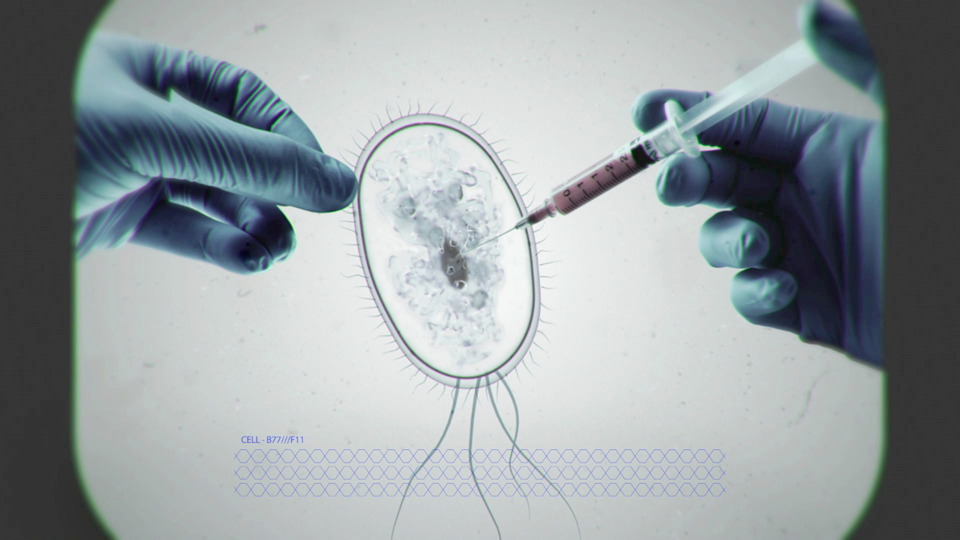
Natural selection has produced everything that exists on our planet today. But we are no longer dependant on the limits of biology. Today, we can read and write DNA code, build new biological systems and make evolution evolve.
Vincent Martin , a professor in microbial genomics and engineering at Concordia University in Montreal, leads us into the vast Canadian wilderness aboard his dog-sled. Man learnt a long time ago how to influence evolution in order to control nature and improve his world. The sled-dogs are the result of the artificial selection imposed by Man. Agriculture, animal farming, domestication… Today, Man is going even further. In his laboratory, Vincent accelerates the evolution process to synthesise new molecules and produce, for example, morphine, without growing poppies.
Frances Aronld, professor of Chemical Engineering, Bioengineering and Biochemistry at the California Institute of Technology, shows us some of the astonishing plant and animal species that live in the Sierra Nevada. Evolution can follow so many different paths that it is impossible that Nature has tried everything… And so Frances has learnt how to crossbreed molecules, as we would cross dogs and cats, recombining their DNA and making them mutate. Through exploring avenues that Nature has not yet travelled, she hopes to produce molecules with unprecedented qualities, of use to mankind, and more effective than any factory…
George Church, a genetics professor at Harvard Medical School, head of the Personal Genome project, and a founding-father of Synthetic Biology, even aims to write a new alphabet for Life. He also works on “retro-evolution”. Thanks to DNA, he explores the history of ancient, extinct species. Will synthetic biology enable us, for example, to recover DNA from a woolly mammoth and create a cold-resistant elephant?
Today, engineers like Drew Endy, a professor of bio-engineering at Stanford University, standardise the building-blocks of life, piece them together and try out new combinations, just as an aeronautics engineer would proceed to design a new aircraft. But what makes biology beautiful is its complexity and unpredictability. Can we reduce it to a game of Lego or Meccano? Can man design and create a completely new living entity? Can he accept the responsibility involved?
At the Frankenstein Castle, Laurie Zoloth, a professor of Bioethics, Medical Humanities and Religious Studies at Northwestern University, questions the unshakable faith in technology and the pragmatism that entails building something first, and learning to solve the problems as you go along… The Frankenstein nightmare is never very far away…
Partner(s) : Fact+Film
Broadcaster(s) : France 5
Director(s) : Charles-Antoine de Rouvre et Jérôme Scemla
Author(s) : Charles-Antoine de Rouvre et Jérôme Scemla
Year : 2016
Duration : 52 minutesFestival(s) :
SELECTED:
- CAID Societas Scientia et ars (Athènes - Grèce)
- Pariscience (Paris - France)
- LSFF - Life Sciences Film Festival (Prague - République Tchèque)
- A nous de voir, Festival Sciences et cinéma (Oullins - France)
- International Festival of Science Documentary Films Academia Film (Olomouc - République Tchèque)